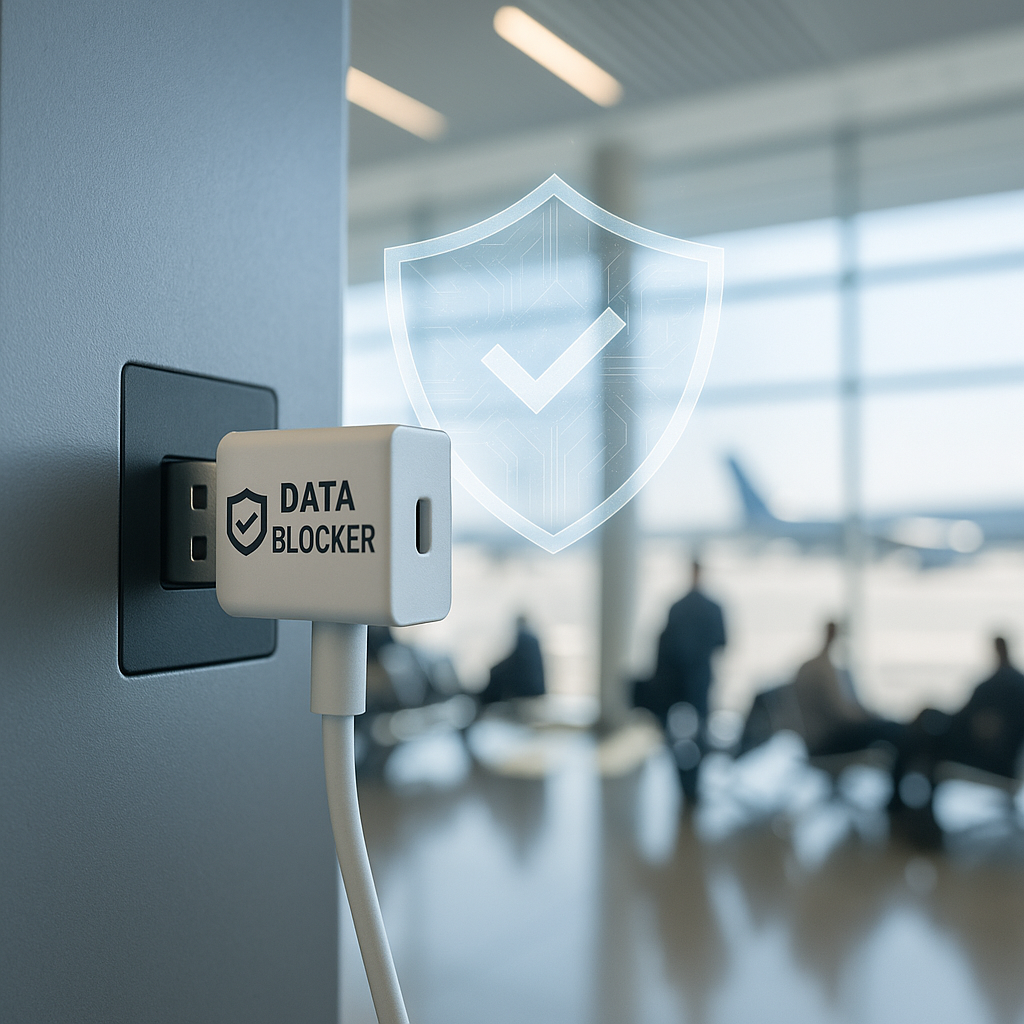
If you’ve ever run low on battery while waiting for your flight at Kenneth Kaunda International Airport or any other Zambian airport, you might have been tempted to plug your phone into one of those handy public USB charging stations. But did you know that using these ports could put your personal information at risk?
What’s the Risk? Understanding “Juice Jacking”
“Juice jacking” is a cyberattack where criminals tamper with public USB charging ports. When you plug in your phone or tablet, malware can be installed on your device, or your private data—like passwords, contacts, and banking information—can be stolen, all without you knowing.
This warning isn’t just for travelers in the US. As Zambia’s airports modernise and more public charging stations appear in malls, hotels, and bus stations, it’s important for all of us to be aware of these risks.
How Can You Protect Yourself?
Here are some simple steps you can take to keep your devices and data safe while travelling in Zambia or abroad:
- Use Your Own Charger and Power Bank: Always carry your own charger and, if possible, a power bank. Plug your charger directly into a wall socket, not a public USB port.
- Invest in a Charging-Only Cable: These special cables allow power to flow but block data transfer, making it impossible for hackers to access your device.
- Use a USB condom, also known as USB data blockers, a small device that let you safely charge your electronics at public USB ports by blocking data transfer and only allowing power through. It’s lightweight and easy to carry.
- Be Cautious with Public Wi-Fi: Avoid entering sensitive information (like online banking details) when connected to public Wi-Fi, as these networks can also be targeted by hackers.
- Keep Your Device Updated: Make sure your phone’s operating system is up to date, as manufacturers regularly release security patches to protect against new threats.
- If Your Device Prompts You: If you see a message asking whether to “charge only” or “share data,” always select “charge only.”
- Don’t leave your phone unattended at public charging stations.
Why Is This Important for Zambia?
With more Zambians relying on smartphones for banking, business, and communication, protecting your device is more important than ever. As our airports and public spaces upgrade their amenities, we must also upgrade our awareness of digital safety.
What Should You Do Next?
Ask yourself these questions the next time you travel or visit a public space:
- Do I have my own charger and power bank with me?
- Am I using a charging-only cable, or am I risking a data connection?
- Is my phone’s software up to date with the latest security updates?
- Have I avoided entering sensitive information while on public Wi-Fi?
- Did I select “charge only” when I plugged in my device?
By making these checks a habit, you’ll help protect your personal information from cybercriminals—whether you’re in Lusaka, Ndola, or anywhere else in the world.
Final Thoughts
As Zambia continues to develop its digital infrastructure, let’s all stay one step ahead of cyber threats. Share this information with friends and family, and let’s keep our devices—and our data—safe!
Have you ever used a public USB charging port in Zambia? What precautions do you take when charging your devices in public? Share your experiences and tips in the comments below!


